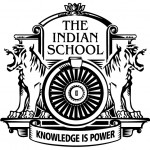Interaction with School chairman on the General Elections
A discussion stimulates critical thinking, encourages students to articulate their ideas and provides a means of learning and exploring relevant academic and social concepts. With an emphasis on the holistic development of its impressionable wards, The Indian School sets opportunities for regular interactions with learned citizenry.
In consonance with this endeavour, the students of classes VIII and IX engaged in a dynamic dialogue with Mr Prafull Goradia, Chairman of the School, on 8 April 2019. The issue that caught everyones fertile imagination was the 17th Lok Sabha General Elections being held in April-May 2019. As a matter of fact, the topic of elections is a part of the CBSE curriculum for schools.
Mr Goradia commenced the session with a brief history of elections and provided an insight into the previously held general elections in India and the world. The students were intrigued to learn that the first elections in India took place in 1909, soon after the Morley-Minto Reforms, and were followed by the provincial elections in 1937 and 1946.
Sir went on to share interesting trivia about the first Lok Sabha elections (1951-52) since independence- the separate electorate, reserved constituency and campaign funding of twenty-odd dollars. Keeping in mind the large population of illiterate voters, polling booths were equipped with differently coloured ballot boxes, on which each candidates name and election symbol was labelled!
The keen listeners were further impressed with the revelation that Britain was the first country to conduct elections in the eighteenth century. Mr Goradia talked about King John and the signing of the Magna Carta, one of the most important documents in the history of democracy. He also shared how King George I ascended the British throne as the first monarch of the House of Hanover, after the death of his second cousin Anne, Queen of Great Britain.
The discussion then shifted focus on how the initial elections in our country were based on the charisma of the leader rather than party ideology. INCs ideology and socialism in their manifesto were also touched upon.
Mr Goradia shared his views on the supreme leaders of the time- Mahatma Gandhi and Babu Jagjivan Ram. He believed that Mahatma Gandhi had the cleanest ideology. He explained the VVPAT (Voter Verifiable Paper Audit Trail) which was used during voting at the time. He mentioned the World Bank formula of 1991 which helped India at its darkest moment.
The session concluded on an explanatory note of why the elections are an expensive process-almost 3000 polling booths staffed by at least 2 people per booth. Mr Goradia responded sagaciously to the insightful questioning by the students that was all at once engaging and enlightening.













